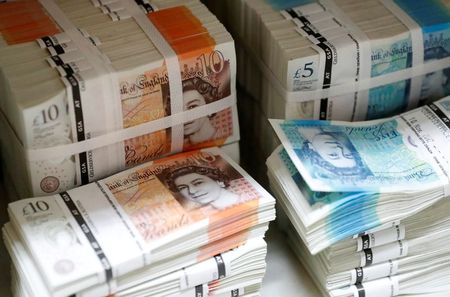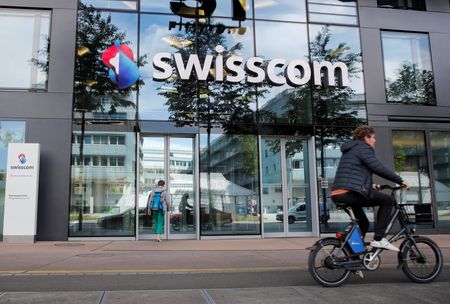By Stefano Rebaudo
(Reuters) -Sterling weakened on Friday as the potential for earlier Federal Reserve interest rate hikes strengthened the dollar, while there was still uncertainty about whether the Bank of England will lift rates this month.
BoE policymaker Michael Saunders, who voted for an interest rate hike in November, said on Friday he wanted more information about the impact of the new Omicron coronavirus variant before deciding how to vote this month.
The dollar rose on Friday after the U.S. jobs report showed solid details that suggested the Fed’s plan to accelerate tapering of its asset purchases and to hike rates next year remained intact.
Sterling fell 0.6% to $1.3218, close to its lowest level since December 2020 of $1.3194 hit on Tuesday.
Against the euro, the pound dropped 0.5% to 85.41 pence, hitting its lowest level since Nov. 12.
ING analysts said that the sterling index now “sits not far from (the) mid-range” traded since March.
They forecast that dollar strength would be the likely driver of sterling until the Bank of England’s rate decision on Dec. 16.
BofA analysts argued that the reaction function of the BoE, which is supposed to show how they balance growth and inflation indicators in their decision about rates, has been changing over time, “becoming more unpredictable.”
A survey by the BoE showed British companies are struggling to find the staff they need and expect higher inflation in the year ahead.
UBS said sterling could find support from the UK government’s rush to expand its vaccine booster campaign to fight the Omicron variant.
“However, this relative advantage would very likely be drowned out if a worsening global situation led to a further correction in global equities,” it said in a research note.
Some analysts said press reports that the United States was to delay trade talks with the UK over post-Brexit concerns regarding the Northern Ireland protocol might add further uncertainty to the pound.
A U.S. administration official on Thursday said the country’s failure to remove tariffs on UK steel and aluminium had no connection to concerns about post-Brexit trade rules affecting Northern Ireland.
(Reporting by Stefano Rebaudo in MilanEditing by Matthew Lewis)











